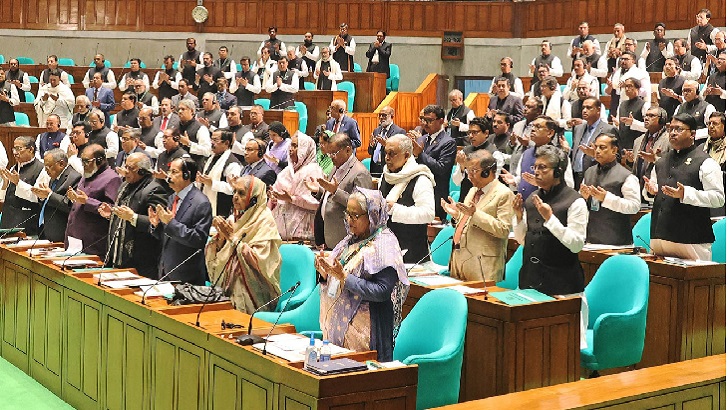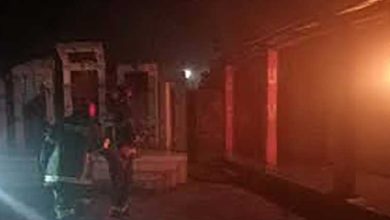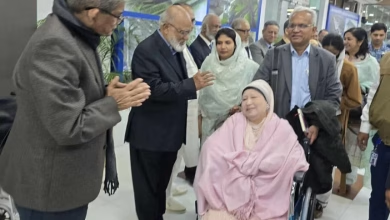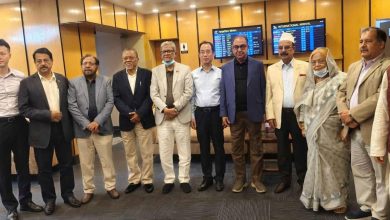Death of the opposition in parliament

From Bangladesh’s birth, our opposition bench in parliament has never been strong
From Bangladesh’s birth, our opposition bench in parliament has never been strong. FILE PHOTO: PID
Of the political ideas that Bangladesh can take credit for giving to the world—like the caretaker government and an opposition with three MPs in the cabinet—the latest is a parliament without any opposition. As our new parliament convened on Tuesday, it had the dubious distinction of being perhaps the only parliament in the world, under the Westminster system, without any genuine opposition. The Jatiya Party (JP), with 11 seats, has been named the opposition, but the truth is all its seats are courtesy of the ruling party.
From Bangladesh’s birth, our opposition bench in parliament has never been strong. The first parliament, as expected, was totally dominated by Bangabandhu’s towering presence and there was no question of any opposition. The BAKSAL experiment eliminated opposition officially as Bangladesh became a one-party state. At that moment, our constitution was changed from parliamentary to presidential form. Then tragedy struck with the brutal assassination of Bangabandhu, and the military entered our politics. Till the fall of Gen Ershad and the restoration of democracy in 1991, the history of “opposition” in parliament was one of a highly “domesticated” one.
The 1991 election, for the fifth parliament, gave us a new beginning, with democracy and the parliamentary form restored. The results showed a wide spectrum of representation in the House with BNP getting 140 seats, Awami League getting 88, JP 35 and Jamaat-e-Islami 18. Khaleda Zia formed a coalition government taking the 18 Jamaat MPs, making for a total of 158 in a House of 300, a political alliance directly contradicting the spirit of our Liberation War and for which she had to pay heavily.
This election was a magnificent opportunity to not only develop parliamentary politics, but also bring to fruition the essential role of the opposition in the whole governance process. With 88 MPs, AL, which was at the forefront of demanding the restoration of the parliamentary form of government, could have really set a tradition of powerful opposition. As a watchdog on the government, it could have practically demonstrated the vital role that opposition could play. It had the experience and the power to do so, but sadly not the maturity.
Regrettably, AL chose the path of frequent walkouts, followed by short-term boycott of the House. The boycott became longer and longer with resignation at the final stage. The whole of five years as the opposition, AL spent on its struggle to oust the BNP government under the demand for a neutral caretaker government to hold the next elections. The synergetic role between the ruling party and the opposition, which is fundamental to the functioning of the parliamentary system, never developed.
This, in a sense, set the tone for all subsequent opposition parties. In the seventh parliamentary election (1996), held under a caretaker government, the AL got 146 seats, the BNP 116, JP 32, and Jamaat 3. This was again a parliament with a very strong opposition. Once again, we lost the chance of developing a mature parliamentary system with the opposition playing its watchdog role over the government, as BNP took the same path as AL and spent its full tenure obstructing the government in all its work, reinforcing the practice of “opposition for opposition’s sake.”
In the eighth parliament (2001), BNP returned to power and AL to the opposition with 62 seats, far fewer than before but big and strong enough to form a formidable opposition. But it was only interested in repeating the past—of acrimony and destructive rivalry. We once again saw endless walkouts, boycotts and resignation and no attempt to strengthen the parliamentary system.
In the ninth parliament, created under the army-backed caretaker government, AL returned to power with an overwhelming majority of 230 seats, giving BNP a meagre 30 seats. The AL took the advantage of its absolute majority and abolished the caretaker system for future elections under the pretext of implementing a shorter text of a High Court judgment, which, in its complete version—released much later—had suggested its continuation for two more terms.
The ‘right hand, left hand’ metaphor used by the PM is the most appropriate description of what we now have as Jatiya Sangsad.
This triggered BNP’s decision to boycott the 10th parliamentary election in 2014 and demand the restoration of caretaker government system. BNP’s boycott initiated the most destructive era in our parliamentary history. With its boycott of the election, for the first time, our parliament became totally devoid of any genuine opposition, giving the ruling party a free play to do whatever it wanted.
If earlier parliaments marked its gradual diminution, the present 12th parliament marks the virtual death of the opposition. The “right hand, left hand” metaphor used by the PM is the most appropriate description of what we now have as Jatiya Sangsad. The parliament’s fundamental function of questioning the actions of the government will now be fully absent. The accountability process, in whatever weakened form it existed, will now disappear.
The complete takeover of the legislature by the executive branch shatters the scheme of check and balance among the judiciary, legislative and executive, as provided for in our constitution, one of whose basic task is to prevent the type of sweeping concentration of state power that we see now, though the process started much earlier. This will have serious implications for the whole governance process, not to mention the future of democracy.
When the executive reigns supreme over the legislature, the judiciary cannot remain unaffected. As it is, the government exerts tremendous power over the judiciary through the process of appointment. Now it will further increase.
The power balance between the bureaucracy and public representatives is likely to tilt more than ever before in favour of the former. This will be so because the ultimate dependency of both the MPs and the bureaucrats is on the head of the government. The outcome of the latest election will make MPs more dependent on the bureaucrats than ever before.
A parliament without an opposition is nothing more than an extension of the Treasury bench spread over the whole House. Such a parliament cannot deliver, especially the accountability, for which taxpayers spend so much money which, according to a TIB survey of the 11th parliament, amounted to Tk 272,000 per minute for only running its sessions.
Such a one-sided parliament is also dangerous for the government itself, as it will never get the critical feedback that only a genuine opposition could provide. Prof Rehman Sobhan spoke for us all when he said, at the Abdul Ghafur Memorial Lecture 2024 delivered on Wednesday, “Unless you actually have a system of governance, which is contingent on the freely given vote of its citizens and is then accountable to them at all times, then there is always, in each of these areas [environment, education and governance], a scope for malfunctions…”
Will the new government be aware of the dangers that a “no-opposition” parliament presents for its own functioning?




